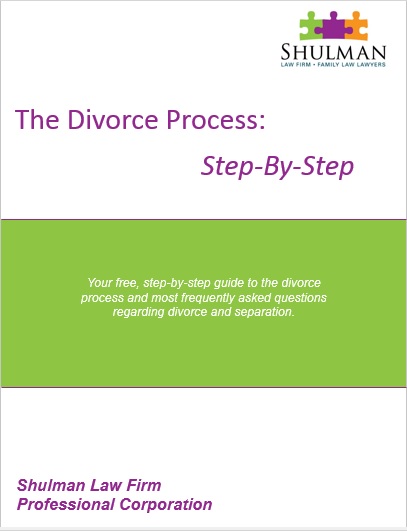
Article written by Ron Shulman
We often hear about unhappy couples staying together to avoid upsetting their children with a divorce or separation. But a recent study out of the United Kingdom says sometimes a split is far healthier and happier for the kids.
In fact, an overwhelming 85% of young people aged 14-22 who had been through a parental separation reported that it was better that their parents divorced rather than stay together.
We often think we can hide our troubles from our children, but the truth is they are very perceptive. You don’t have to indulge in screaming matches in front of them for them to pick up on your distress. Simple bickering, frequent negative comments or a lack of obvious affection between parents can be enough for a child to start questioning whether he or she is to blame for the rift, Alyson Schafer, author of Honey I Wrecked the Kids,told the Toronto Star in this article from January 28, 2016.
So what can you do if you want to separate but don’t want to cause unnecessary suffering to your children? Here are three strategies from the article to lessen their anxiety.
1. Be honest, but spare them the gory details.
Around half (47%) of the children surveyed in the study said they didn’t understand what was happening during their parents’ separation or divorce. Knowing the age-appropriate basics of what is going on throughout the separation and divorce process can help ease doubt and allow a child to make their own plan of action. But knowing all the gory details of the reasons behind your separation or any ‘heated’ things you say during the divorce process can be devastating. In fact, 31% of young people said they would have liked their parents “not to be horrible about each other to them.
2. Include them in decisions that will affect them when appropriate for the child’s age.
The study says 62% of young people polled felt they were left out of the decision-making process—most notably 50% stated they did not have any say as to which parent they would live with or where they would live. This uncertainty and lack of control can be extremely stressful for children and young adults living through a separation and divorce
3. Never use them in a tug of war.
Another overwhelming 88% said it is important to make sure children do not feel like they have to choose between their parents. You may have lost that loving feeling for your partner, but your child most likely has not. As much as it is imperative that you reassure your child that you love them and the divorce is not their fault, you must also recognize their right to love both of you equally. Anything less is exceedingly unfair and, well, childish on your part.
The good news from the study is that 50% of young people agreed that their parents put their needs first during their separation or divorce. And that’s precisely what I try to advise our clients to do.
I know it’s impossible to expect a completely amicable separation and divorce process. If you could get along with one another that well, you’d probably be staying together. But our team does try to help clients resolve parental differences with as little conflict as possible.
That said, parents should never involve the children in adult disputes, and should always be very cautious when raising sensitive issues surrounding separation and divorce with their children.
If necessary, seek professional parenting advice just as you are seeking professional legal advice.
So if you are considering a divorce or legal separation and are hesitant to act “for the kids’ sake” it’s time to give careful thought as to whether or not staying in an unhappy union is actually having a negative effect on them. Then talk to us for advice on how you can ensure their needs are met throughout the legal process.
For more information, download our e-book The Divorce Process: Step-By-Step.
%201.png?)

